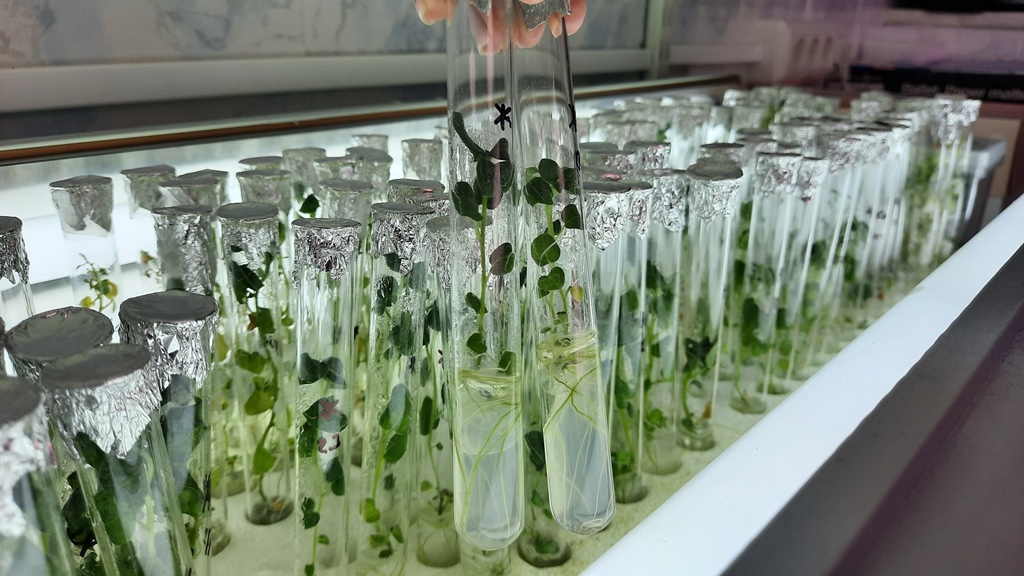Global climate change and population growth drastically increase the urgency of providing humanity with food security measures. According to the Intergovernmental Panel on Climate Change (IPCC), increasing desertification and drought are affecting many parts of the world. As part of joint research projects supported by the Russian Science Foundation, scientists from Russia and Belarus are developing a technology to ensure the resistance of essential agricultural crops despite water scarcity.
“We collaborated with Institute of Bioorganic Chemistry NAS of Belarus and K.A. Timiryazev Institute of Plant Physiology of the Russian Academy of Sciences to complete tasks that are of fundamental and applied significance simultaneously,” says associate professor Marina Efimova of the Department of Plant Physiology, Biotechnology, and Bioinformatics of TSU Biological Institute. “To increase plants' resistance to drought and chloride salinization of soil, we are going to use steroidal phytohormones and their derivatives—natural compounds that came into existence through evolution. But using this approach to solve goal-oriented tasks will require deciphering the very functional principles laid down by nature, copying them and shaping them into nanobiotechnologies.”

The main object of the study will be brassinosteroids—hormones that are responsible for the normal functioning of a plant's immune system, especially in inhospitable conditions: low temperatures, excessive moisture and drought, diseases, and pesticides. The key feature of brassinosteroids is the ability to increase productivity and stability of plants in micromolar and nanomolar concentrations.
“The brassinosteroids' representation in plants is extremely limited, which makes it almost impossible to identify them, so it is necessary to obtain these substances chemically from available plant raw materials,” explains Professor Efimova. “Belarusian colleagues are world leaders in the field of brassinosteroid synthesis. As part of the project, they will synthesize derivatives of this phytohormone type with additional functional grouping for binding with proteins. It will be possible to attach the molecules of interest to the groupings, and they will provide plants with new properties.”
TSU biologists will study the effect of these phytohormones on monocotyledonous and dicotyledonous plants exposed to drought and salinization: barley, rapeseed, potatoes, and arabidopsis. Through joint work, scientists will create methods for managing the viability and productivity of plants with the use of bioregulators. Brassinosteroids will be used for pre-sowing seed treatment and plant root treatment.
Currently, TSU scientists are actively working on new approaches for targeted management of the properties of the most in-demand agricultural crops. Among the tools used are modern genome editing technologies. Biologists' research is implemented in the large-scale strategic project Engineering Biology as a part of the federal program Priority 2030. The research results aimed at growing highly productive and environmentally friendly crops, will contribute to ensuring the nations’ food security.
